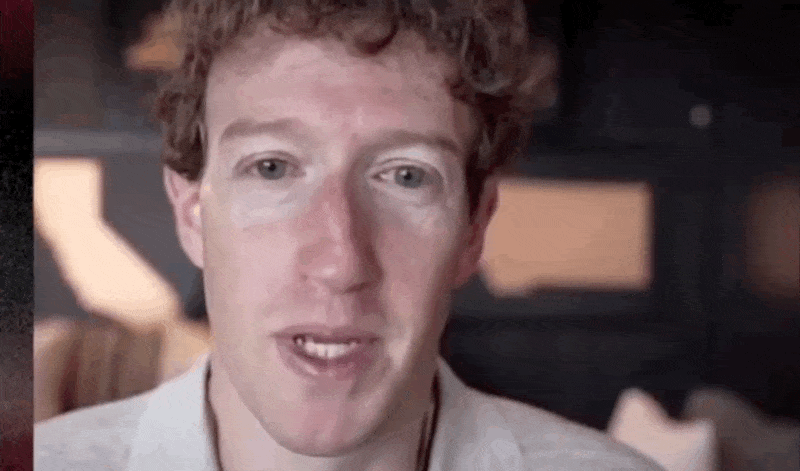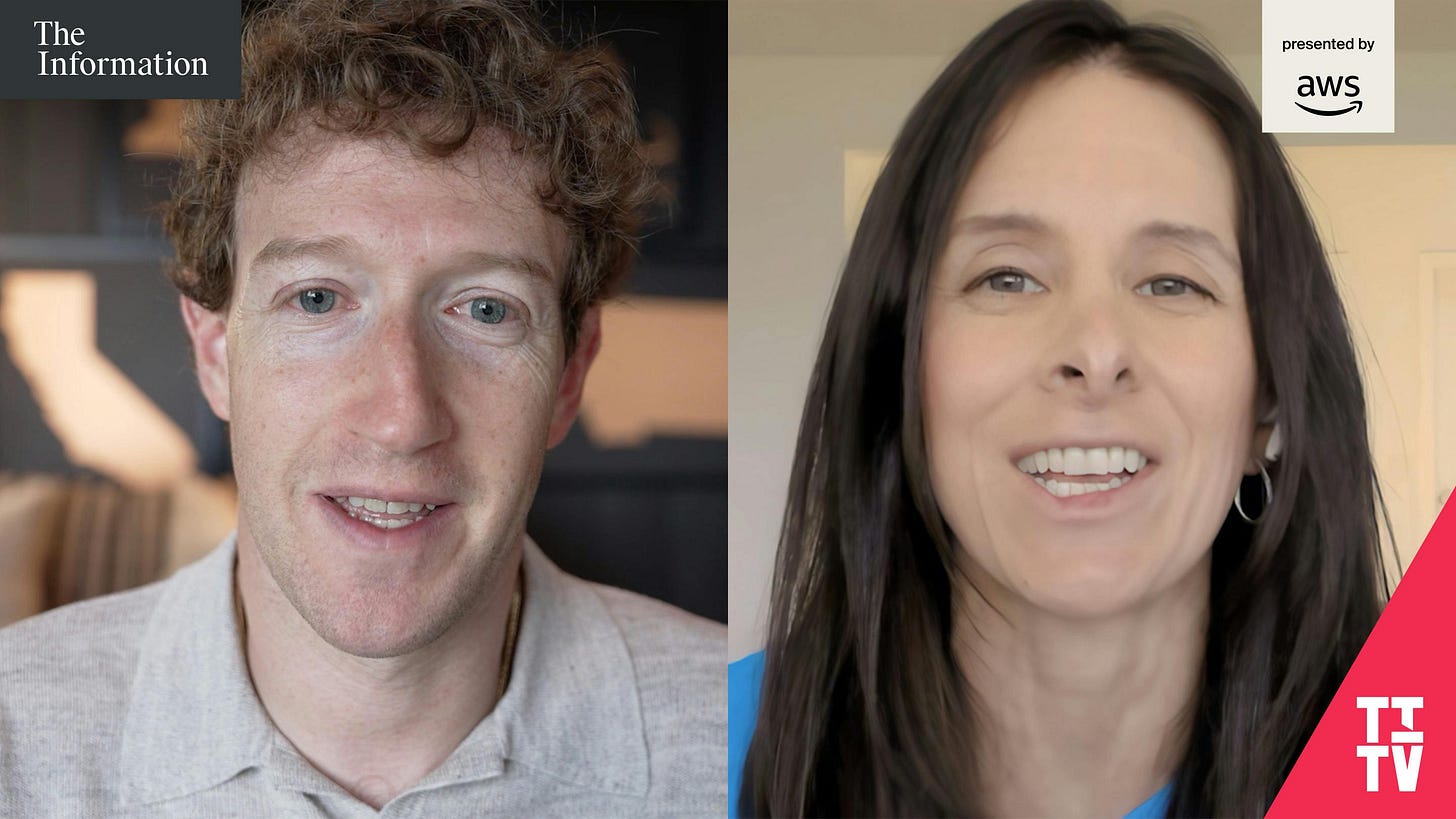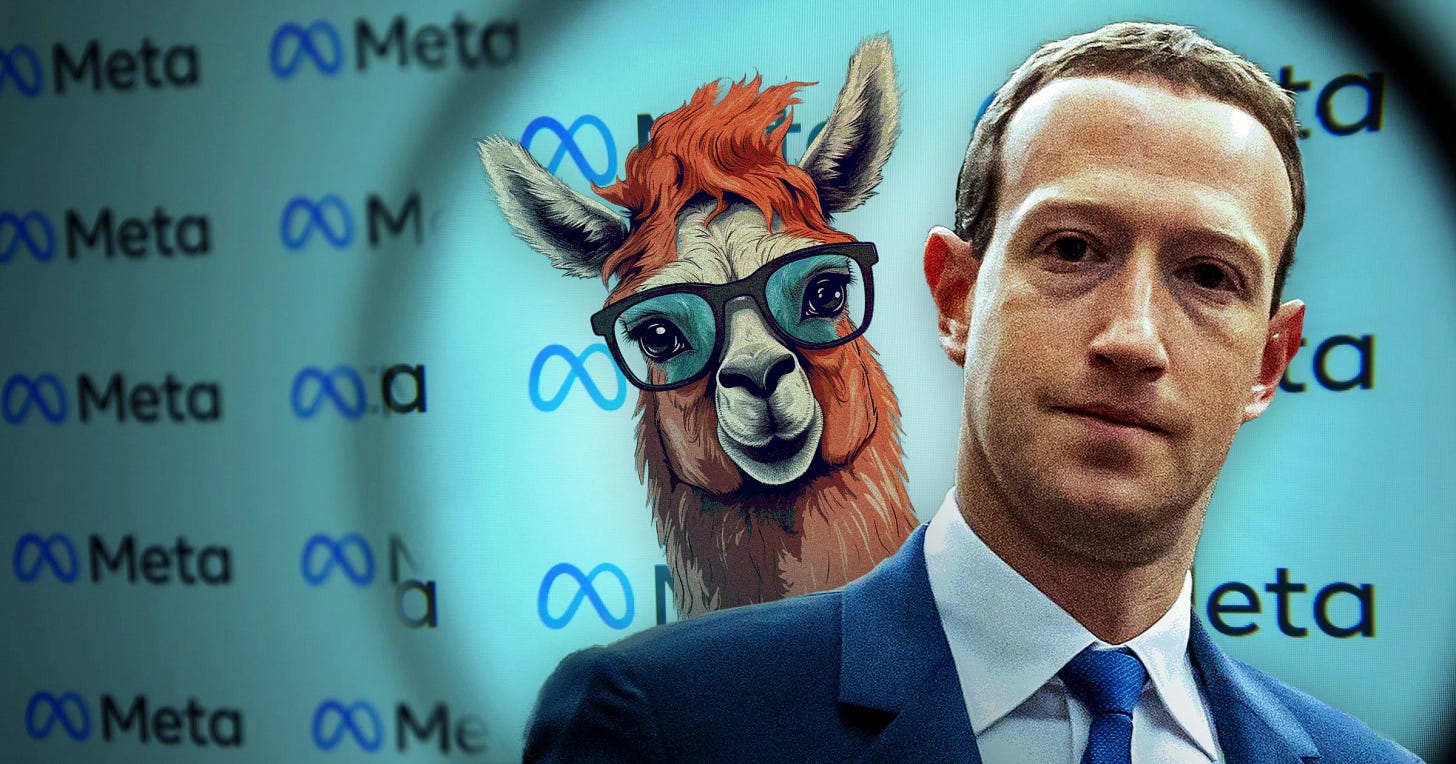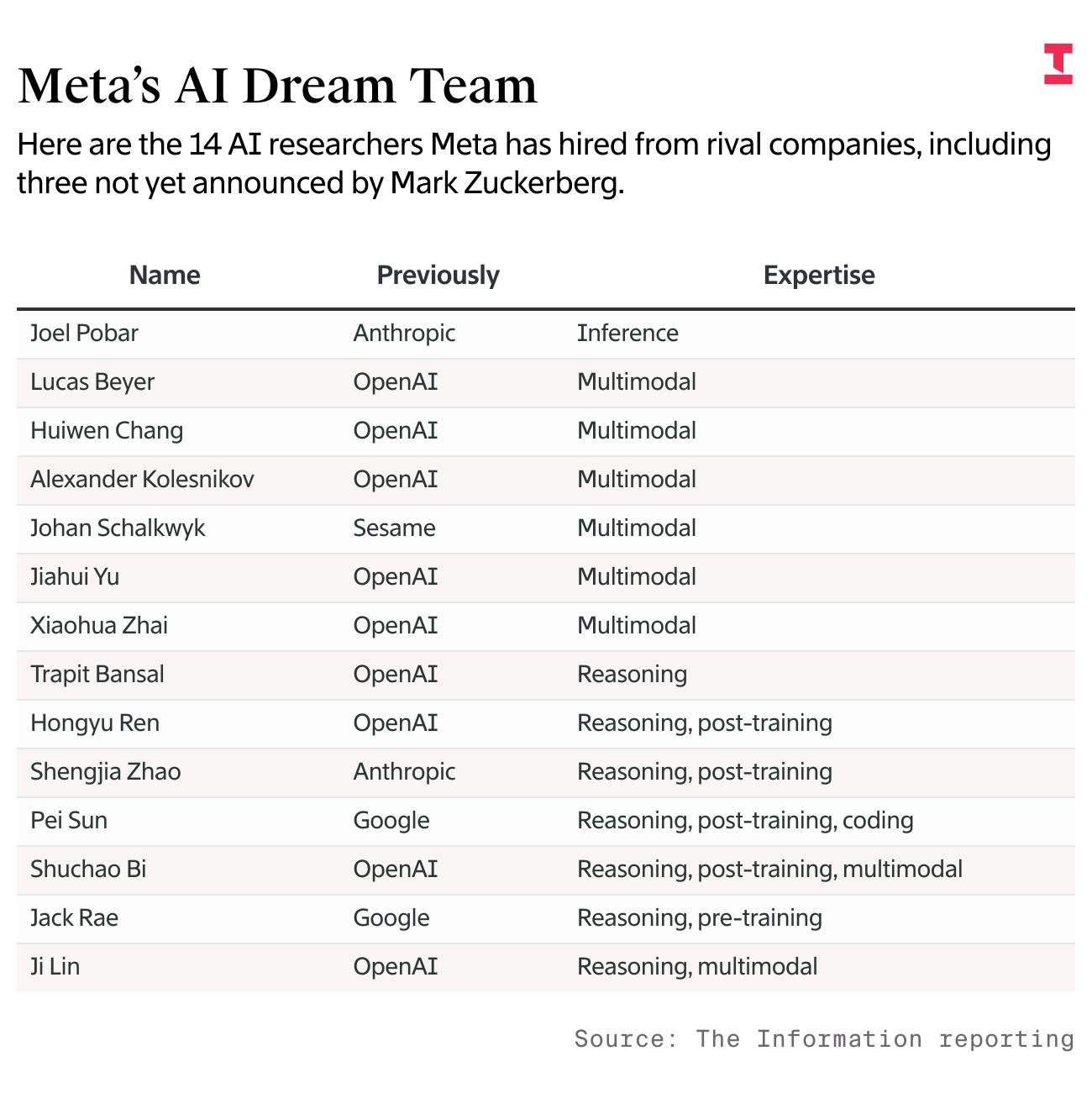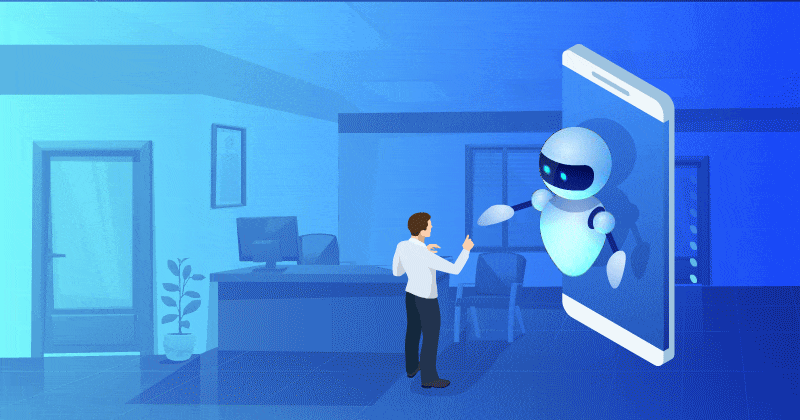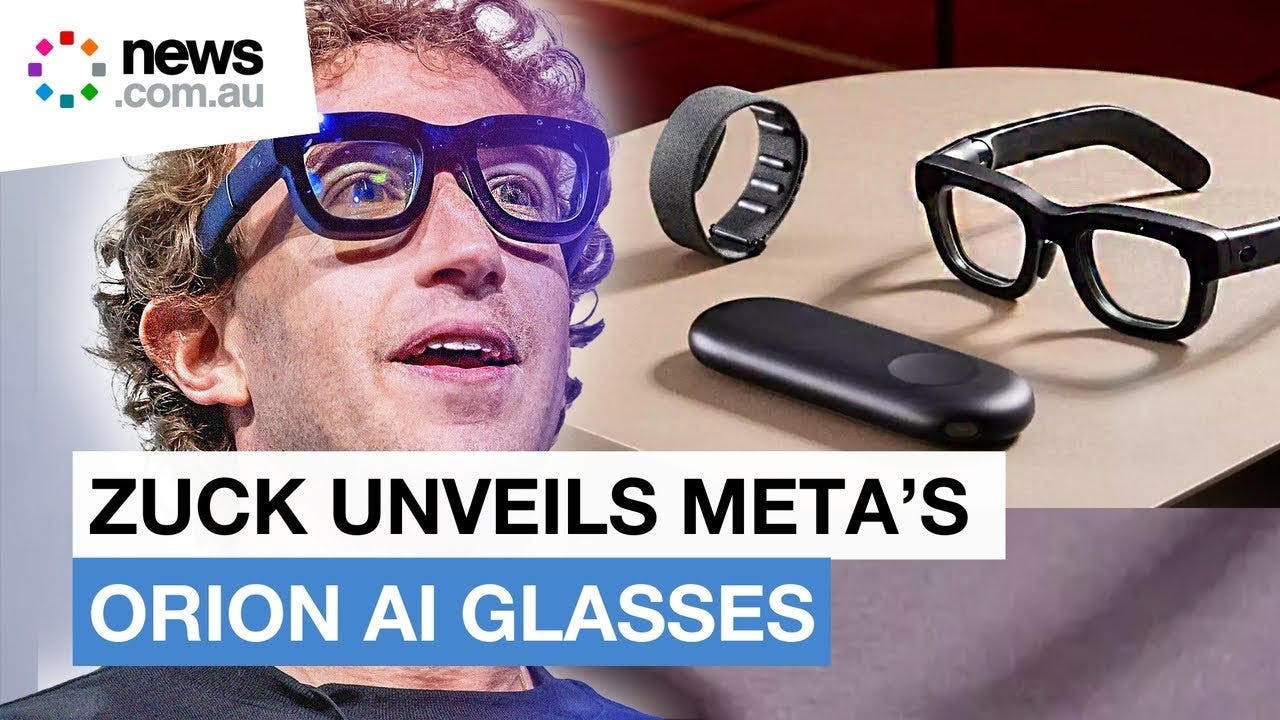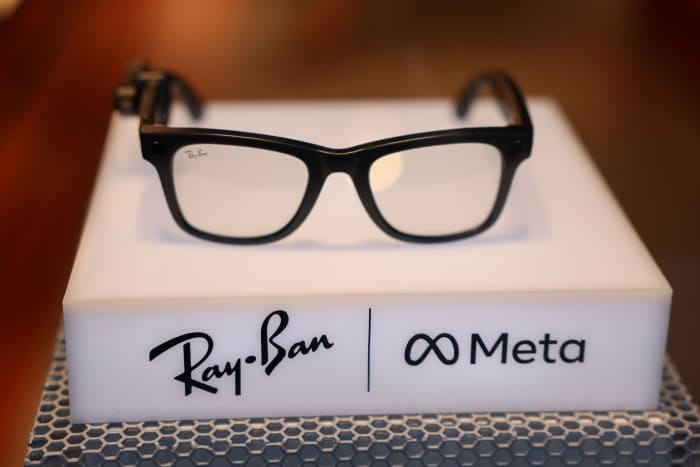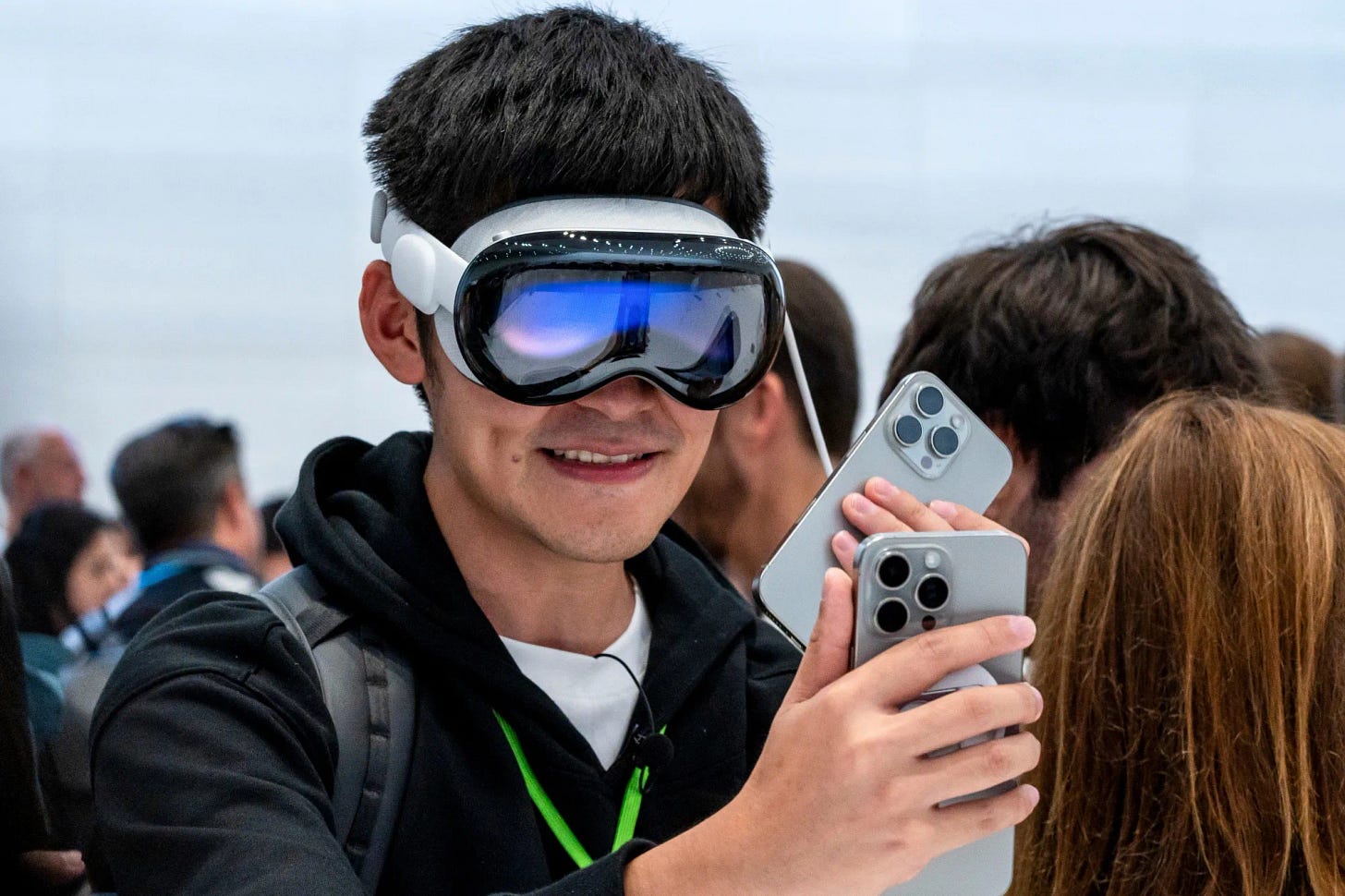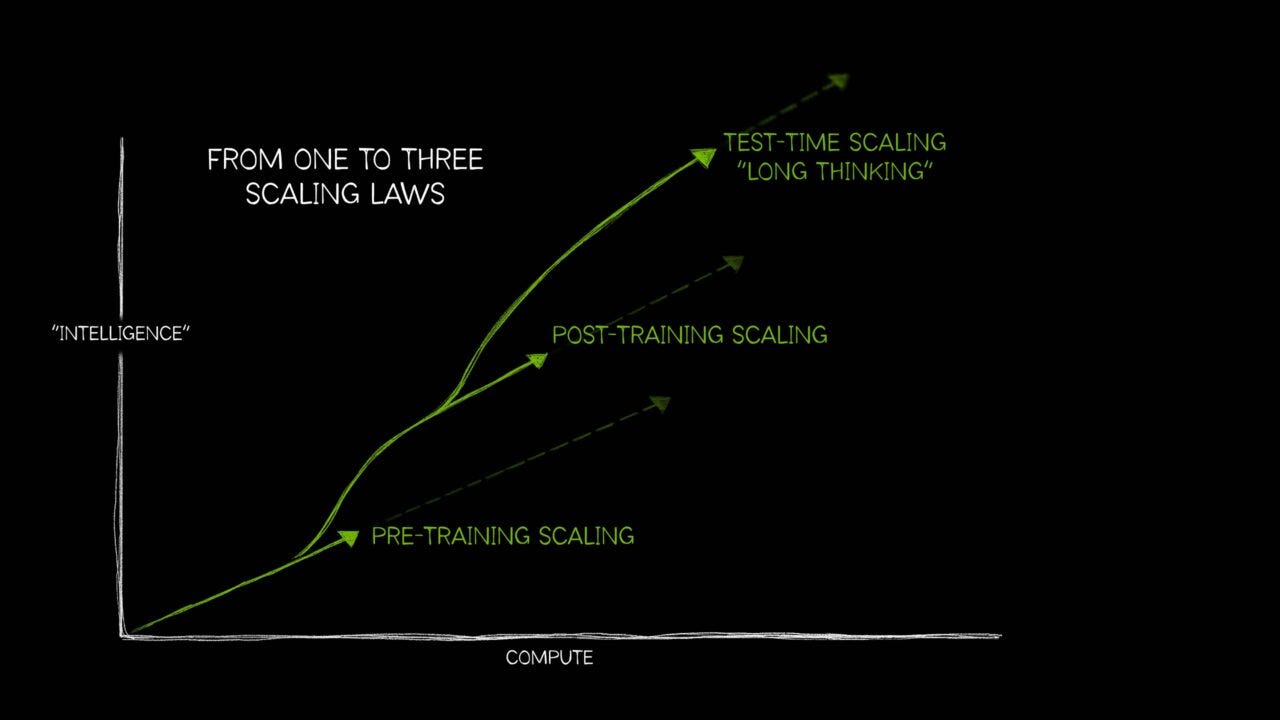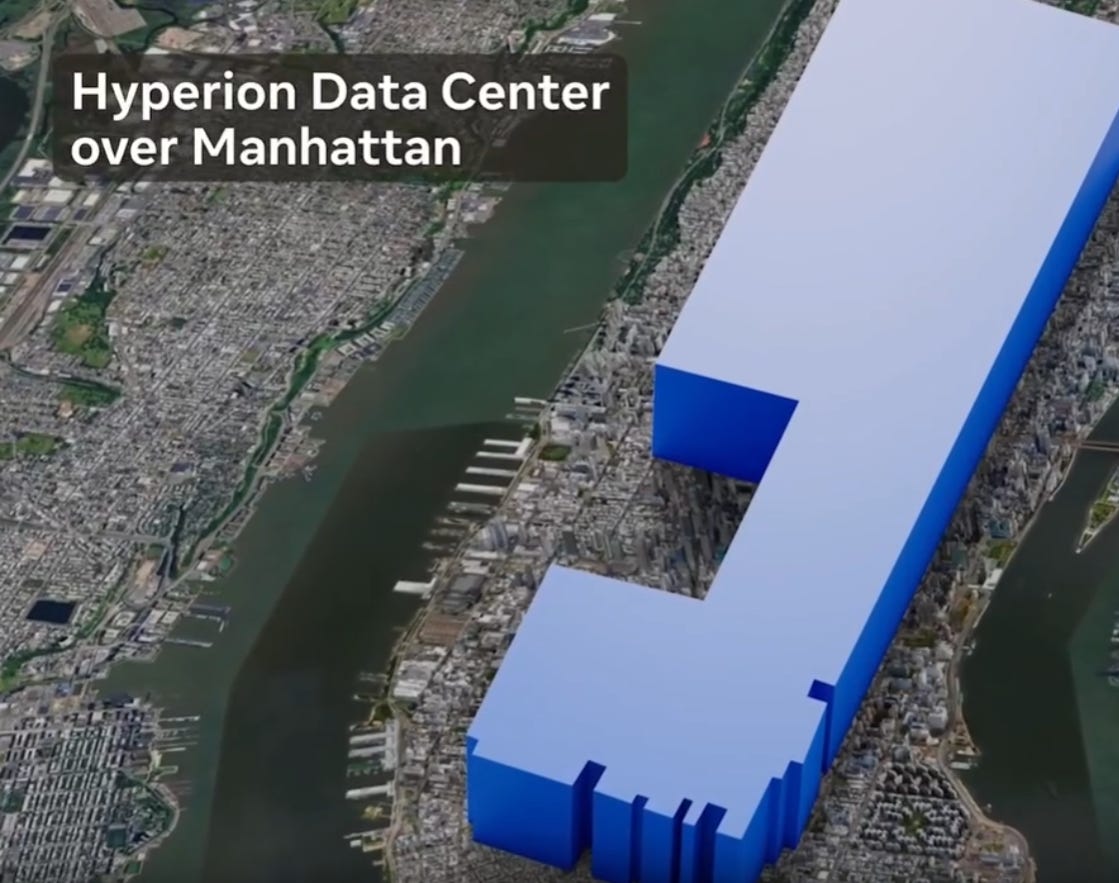AI: Meta's 'Zuck' focused on Personal AI Superintelligence for billions vs peers. RTZ #784
...leveraging Meta Capital to build AI Compute at Scale for top AI Talent
We can now hear Meta founder/CEO Mark Zuckerberg (aka Zuck), explain his latest take on AI in his own words.
This summer has seen Mark Zuckerberg’s aggressive moves this AI Tech Wave on both the AI Talent and AI Data Center Infrastructure. It’s changed the trajectory of the industry’s AI ‘Table Stakes’ bets for rest of the year and beyond. Especially his rapid shift to prioritise AI industry goals like ‘AGI’ and ‘AI Superintelligence’, with their debated definitions and timelines.
It’s been obvious from the beginning that ‘Zuck’ is in ‘founder’ mode on AI, with a laser focus and commitment not found with the same intensity at most of his ‘Mag 7’ peers. And it’s been tough to discern the ‘method in the madness’ of committing tens and hundreds of billions into AI with all its uncertainties. Despite the long-term promise.
But there are distinctions to be drawn between Meta’s goals and priorities vs its peers. And Zuck presents some elements of that discernment in a recent interview with the Information’s founder/CEO Jessica Lessin.
It’s laid out in “Inside Zuckerberg’s AI Playbook: Billions in Compute, a Talent Arms Race, and a New Vision for Meta”, complete with transcript of the video interview:
“When I sat down with Meta CEO and founder Mark Zuckerberg to talk artificial intelligence, I expected that he would want to discuss the company’s new supercomputer plans and talk about why he’s been working the phones all summer in a red-hot AI recruiting blitz.”
“We covered all that. But over the course of the interview, I heard something more interesting emerge: two clear new doctrines that are guiding Zuckerberg through this next big and uncertain phase for the tech giant and the industry.”
She draws out some of the key takeaways:
“The first is around Meta’s vision of personal super intelligence and what it means for billions of people—a vision starkly different from the rest of the AGI and super intelligence conversations today.”
“And that second—which I don’t think I have ever heard Zuckerberg discuss in the last 20 years around running Meta—is his vision around how he deploys capital—these days in tens of billions of dollar chunks, it seems.”
“We also discussed the latest in data center tech (yes, they’re putting servers inside tents), why researchers are really flocking to Meta and what he said to Altman and his other rivals at Sun Valley.”
“Here’s the transcript. I hope you find it a valuable conversation and continue to check out The Information’s TITV for more conversations like this one. (Full video here.)”
The whole interview again is worth reading and watching. But I’ll highlight some of the key segments from my perspective.
First, how Zuck differentiates his AI focus vs peers:
“Mark Zuckerberg: ‘Our mission with the lab is to deliver personal super intelligence to everyone in the world, so that way we can put that power in every individual’s hand. And I’m really excited about it. It’s a different thing than what the other labs are doing.”
And of course building his AI Dream Team, along with some Super AI Infrastructure. Leveraging of course Meta’s superpower, a core business serving billions with ads that throws off massive cashflow:
“And my view is that this is going to be something that is the most important technology in our lives. It’s going to underpin how we develop everything at the company, and it’s going to affect society very widely. So we just want to make sure that we get the best folks to work on this, from entrepreneurs to researchers to engineers working on the data and infrastructure.”
“And then, of course, we want to back up with just an absolutely massive amount of compute which we can support, because we have a very strong business model that throws off a lot of capital.”
He side-stepped the questions on its current focus on open source Llama LLM AI, currently at Llama 4. This could apparently change at Meta, accroding to some new reports:
“Did you feel like you were behind coming out of Llama 4? It seems like this summer, in particular, you switched gears a little bit.”
“I think the field is accelerating, you know, we keep on having goals for where we want to be. And then the field keeps on moving faster than we expect.”
“So you know, look, I’m not a person who’s ever particularly happy with where we are. I always want to be better. But I think the thing here that I am very focused on is the technology that is going to be possible to develop over the next period of time. It is going to be super fundamental, and I just want to make sure that we position ourselves.”
And deftly addressed the constant debates over AGI/ASI definitions and timing:
“There is this big debate in the industry today. All right, is super intelligence going to be possible in three years, five years, seven years?”
“But I don’t think anyone knows the answer. I just think that we should bet and act as if it’s going to be ready in the next two to three years.”
“I believe there’s a shot at that. And if that is what you believe, you are going to invest hundreds of billions, for hours, whatever it takes to build out the strongest team.”
And put the recent AI Talent War salacious buzz over the sports industry type salaries vs the bigger picture:
“And what about reports that you’ve been spending up to $100 million or $200 million on packages for recruits. Can you comment? Are those numbers accurate? And just how do you think about the price for talent in this war that’s underway?”
“So look, I mean, a lot of the specifics that have been reported aren’t accurate by themselves. But it is a very hot market. I mean, as you know, and there’s a small number of researchers, which are the best, who are in demand by all of the different labs. So I think that it certainly is quite competitive.”
“You know what I’d say. I think in perspective, if you’re going to be spending hundreds of billions of dollars on compute and building out multiple gigawatt of clusters, then, you know, it really does make sense to compete super hard and do whatever it takes to get that, you know, 50 or 70 or whatever it is, top researchers to build your team.”
“I think that the physics of this is you don’t need a massive team to do this. You actually kind of want the smallest group of people who can fit the whole thing in their head. So there’s just an absolute premium for the best and most talented people.”
“So it kind of makes sense when you kind of think about it that, from that perspective, the amount that is being spent to recruit the people is actually still quite small compared to the overall investment and all when you talk about super intelligence.”
And most importantly, separated Meta’s ambitions on consumer AI vs the more enterprise focus of its peers:
“Obviously, you’ve got Microsoft, OpenAI, Google, and many of them have big enterprise businesses. How do you think about the Meta opportunity? Is it the same kind of vision around productivity or something else?”
“I think personal superintelligence is a different vision than what the others are going for. It is kind of like when the internet was first getting to scale, people were like, all right, is the internet going to be for productivity?”
“Is it going to be for entertainment, or is it going to change how we work at our companies? And the answer is, all.”
Goes without saying of course is that Meta will also use their massive AI Compute to serve AI Ads at Scale for their core customer constitutency globally: Advertisers.
But the distintion from AI driven productivity in businesses for ‘Knowledge Workers’ is different from their needs in their personal lives.
“I think the same is going to be true for AI, and there are going to be different companies that focus on different parts of it. So far, I think that, you know, you hear a lot from the other labs around wanting to automate all of the economically productive work in society.”
“And, you know, certainly, I think that economic automation and economic progress, there’s a lot of potential there to do great work that’s very helpful to a lot of people. But there’s another side of this, which is like, what are the things that people care about in their own lives?”
“And some of that is productivity. But a lot of it is relationships and culture and creativity and having fun and enjoying life. And my guess is that, there’s a lot of the folks at the other labs kind of talk about, OK, we want to develop this central superintelligence and direct it at grand problems.”
“And I think the reality is that there’s a lot of great stuff to do there, and I’m excited about that. And I think when you put personal super intelligence in people’s hands, some of what they’re going to want to do is direct it at grand problems. But I actually think a lot of what people care about are just relatively simpler things in their lives.”
He then went on to focus on the AI device strategy that accompanies all of the above, the tens of billions invested already by Meta into ‘Metaverse’ technologies, leveraged by rapidly improving AI ‘Smart Glasses’. A topic I’ve covered in detail.
“And part of our ethos and values have always just been to try to put that power into people’s hands directly.”
“But I think the products that we’re going to build are going to be, are going to be pretty different, and I think are just going to touch billions of people’s lives.”
“We’re kind of the premier company at developing products and scaling them to billions of people. And we’re, of course, leading in the next generation of computing platforms with the glasses that are doing exceptionally well.”
“And I continue to think that that’s going to be the best form factor for AI, because, you know, they can see what you see and hear what you hear, and you can talk to them throughout the day.”
“And once we get a display and the Holograms in there, it’ll be able to generate a UI for you. So I think there’s just going to be this incredible connection between those things.”
It’s Metaverse via smart glasses potentially, as a key iterative target for the company:
“So I’m picturing my Meta, super intelligence glasses, companion, friend, doing things for me. Am I on the right track?”
“Yeah. I think we’re going to reach a point where you’re going through the world and you’re having conversations.”
With Meta’s own vision of personal AI Agents and Companions:
“One thought experiment that I like to do is in almost every conversation that I have, there’s like, five things I want to follow up on, but I almost don’t ever follow up on all five, right?”
“Just because I go do something else, maybe I’ll follow up on one, if I’m lucky. And, in the future, we’re gonna have glasses and they’re gonna be able to, if you want, observe what’s going on in your life and be able to go follow up on things for you and and either, follow up with you later, or give you information in real time in the glasses.”
With a thought experiment vs today’s glasses:
“And it’s, it’s almost gonna be like, look, if you need vision correction and you don’t have glasses, just optical glasses, you’re sort of at this cognitive disadvantage.”
“I think in the future, if you don’t have AI glasses, you’re basically going to be at a cognitive disadvantage too.”
“So yeah, I mean, that’s part of what we’re going to do. But we’re also very focused on the entertainment, the culture, the kind of personal relationships with people. I think that, like having an AI that can help you with that, is going to be super valuable.”
The last key point was on the AI investments as a leverage point within Meta for its engineers and researchers as they race to Scale AI:
“And in addition to the direct products, super intelligence is also obviously going to really change how we develop things at the company, and how all of our software development goes.”
“And I think our engineers are just gonna be way, way, way more productive than they are now. So I know that’s gonna be really exciting and is just something that we really want to focus on, especially the self-improvement loop.”
And of course it’s all core to Zuck’s innate competitiveness and how it’s powering his sense of urgency, particularly on the AI Infrastructure front:
“I view that as a competitive advantage. If we can get this to work well, and that’s why we are basically all in on this. We’re building, you know, we’re building multiple, multigigawatt data centers, and we can basically do this all funded from the cash flow of the company. We have a very strong business model that supports this. We have a very strong infrastructure team that is doing novel work to build up data centers.”
“You know, I wanted them to not just take four years to build these concrete buildings.”
“So we pioneered this new method where we’re basically building up these weatherproof tents and building out the networks and the GPU clusters inside them in order to build them faster. They are hurricane-proof tents.”
And the Scale of the buildout is breathtaking as and when executed:
“We have people working around the clock on Prometheus and Hyperion, which are our first two Titan clusters that are going to be greater than a gigawatt.”
“Hyperion is going to scale up to five gigawatts over the coming years. And I shared this image of it, but the size of the site covers a significant portion of the footprint of Manhattan in terms of space. That thing is just massive.”
Massive indeed when considered at relative scale.
And ultimately, how it’s all a draw for the world’s best AI Talent in the current competitive environment:
“I’m very excited that I think we’re going to have the largest compute fleet of any company, and focusing on that on being powered by a small and talent-dense team, I think we’re gonna have by far the most compute per researcher to do leading edge work. And I think that it’s just gonna be a really exciting, big few years coming.”
He stressed his personal attention to all the details:
“I’m obviously spending a lot of time on recruiting and a lot has been written about money and all that. Like I said before, a lot of the numbers specifically have been inaccurate, but I think it discounts the other key reasons why people are super excited to come work on Meta Superintelligence Labs.:
“And one of the biggest is that you can just have more leverage as a researcher. You have more compute right? I mean, basically historically, when I was recruiting people to different parts of the company, you know, people are like, OK, what’s my scope going to be?”
“And, you know, here, people say, I want the fewest number of people reporting to me and the most GPUs. And so having basically the most compute per researcher is definitely a strategic advantage, not just for doing the work, but for attracting the best people.”
And that is it in a nutshell. Zuck’s core pitch not just to prospective new AI talent, but to the rest of his stakeholders outside. The method to the Meta ‘madness’ around AI in this summer of 2025.
It’s a very differentiated path and pace to the AI opportunity relative to his peers. Both here and abroad. And will of course see ensuing actions and reactions by the industry at large. Stay tuned.
(NOTE: The discussions here are for information purposes only, and not meant as investment advice at any time. Thanks for joining us here)




